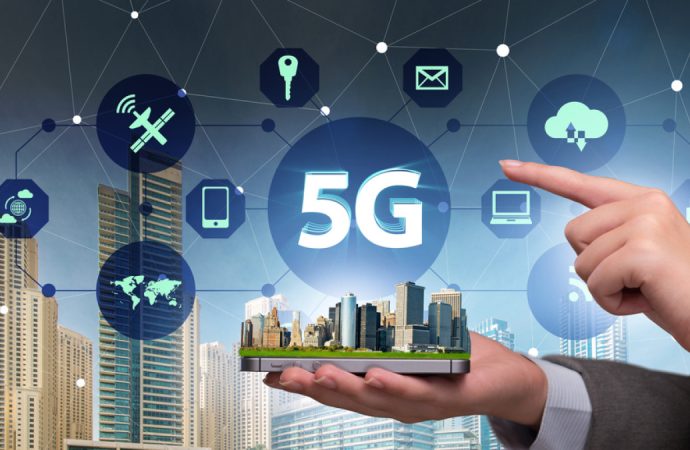In the ever-evolving landscape of technological advancements, few innovations have garnered as much attention and anticipation as 5G technology. This next-generation wireless network promises to revolutionize various sectors, and the travel industry is no exception. With its unprecedented speed, low latency, and capacity to connect a multitude of devices, 5G technology is set to transform
In the ever-evolving landscape of technological advancements, few innovations have garnered as much attention and anticipation as 5G technology. This next-generation wireless network promises to revolutionize various sectors, and the travel industry is no exception. With its unprecedented speed, low latency, and capacity to connect a multitude of devices, 5G technology is set to transform the way we travel, from the planning stages to the actual journey and beyond. This article delves into the multifaceted ways in which 5G technology is revolutionizing travel, offering a professional analysis of its potential impacts.
Enhanced Connectivity and Communication

Image by: yandex.com
One of the most significant ways 5G technology is revolutionizing travel is through enhanced connectivity and communication. Travelers can expect seamless internet access, even in remote or densely populated areas. This constant connectivity facilitates real-time communication between travelers and service providers, ensuring that any issues or changes can be addressed promptly. For instance, airlines can provide real-time updates on flight statuses, gate changes, and potential delays directly to passengers’ mobile devices, enhancing the overall travel experience.
Streamlined Airport Operations
Airports are complex ecosystems that require efficient coordination to function smoothly. 5G technology can streamline various airport operations, from security checks to baggage handling. With faster data transfer rates and improved reliability, 5G can support advanced biometric systems for quicker and more secure passenger identification. Additionally, smart baggage tracking systems enabled by 5G can provide real-time updates on luggage location, reducing the chances of lost baggage and enhancing passenger satisfaction.
Autonomous Vehicles and Smart Transportation
The advent of 5G technology is a catalyst for the development and deployment of autonomous vehicles. In the context of travel, this means more efficient and safer transportation options. Autonomous shuttles can navigate airport grounds, transporting passengers between terminals with precision and ease. Moreover, smart transportation systems can optimize traffic flow, reducing congestion and travel time. For travelers, this translates to more reliable and efficient ground transportation options, whether they are commuting to the airport or exploring a new city.
Immersive Travel Experiences
5G technology is also paving the way for more immersive travel experiences through augmented reality (AR) and virtual reality (VR). With the high-speed and low-latency capabilities of 5G, travelers can access detailed AR guides that overlay information on their surroundings in real-time. For example, tourists visiting historical sites can use AR glasses to view reconstructions of ancient buildings or receive contextual information about artifacts. Similarly, VR can offer virtual tours of destinations, allowing travelers to explore and plan their trips more effectively before they even leave home.
Enhanced In-Flight Connectivity
For many travelers, in-flight connectivity has been a long-standing issue. The limitations of previous wireless technologies have often resulted in slow and unreliable internet access during flights. However, 5G technology promises to change this by providing high-speed, stable internet connections at 35,000 feet. This enhancement allows passengers to stay connected, work, or stream entertainment without interruption, significantly improving the overall in-flight experience.
Smart Hotels and Personalized Services
The hospitality sector stands to benefit immensely from the implementation of 5G technology. Smart hotels equipped with 5G can offer personalized services tailored to individual guest preferences. From automated check-ins facilitated by facial recognition to smart room controls that adjust lighting and temperature based on guest preferences, the possibilities are vast. Furthermore, 5G-enabled devices can provide real-time language translation services, breaking down communication barriers and enhancing the guest experience.
Efficient Travel Planning and Management

Image by: yandex.com
Travel planning and management are set to become more efficient with the integration of 5G technology. Travel agencies and service providers can leverage 5G to offer real-time updates and personalized recommendations based on travelers’ preferences and behaviors. Additionally, the ability to process and analyze vast amounts of data quickly means that travel disruptions, such as weather-related delays or route changes, can be managed more effectively, minimizing inconvenience for travelers.
Conclusion
In conclusion, 5G technology is revolutionizing travel in numerous ways, from enhancing connectivity and communication to enabling immersive travel experiences and streamlining operations. As this technology continues to evolve and become more widespread, its impact on the travel industry will only grow, offering travelers more efficient, personalized, and enjoyable experiences. The integration of 5G technology represents a significant leap forward, promising to transform the way we travel and explore the world.
Meta Description
become more widespread, its impact on the travel industry will only grow, offering travelers more efficient, personalized, and enjoyable experiences. The integration of 5G technology represents a significant leap forward, promising to transform the way we travel and explore the world.
















